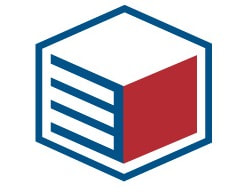|
24/9/2021 1 Comment inspecting the home inspectorsExamining the quality and consistency of home inspections In real estate transactions, some things never change. Sellers often feel they’re giving their house away, buyers believe they’ve paid too much and Realtors fear neither side will ever get to the closing table. There is however one thing that has been inconsistent in real estate transactions: the quality of the home inspection.
That’s been slowly changing over the past thirty years or so, with the inception of professional home inspection associations. To gain membership, home inspectors typically prove their competency by passing exams, meeting annual education and experience requirements - and by maintaining a professional service to the public. In 2016 the CSA Group, a Canadian non profit standards organization, published a new national standard on how home inspections should be conducted. Ontario, Alberta and BC all helped fund the creation of this new standard. The three provinces say they are currently in the process of reviewing the document and deciding whether or not to incorporate it into their regulations. With the exception of BC and Alberta, home inspection is however not a licensed profession, and membership in one organization or another is not always the best way to measure competence. Home inspections have been around for quite a while, and for good reasons. For a very modest fee, home buyers can gain a wealth of information about the condition of a property before they buy it. An ongoing increase in the popularity of home inspections has created an over-populated inspection industry where not all inspectors have the training or experience to do a good job. Cost-conscious consumers find out too late that trying to save $50 to $100 on an inspection can result in an inadequate report. Unfortunately, this can translate into thousands of dollars in unexpected repairs being discovered after the sale. And well-meaning, however over-zealous home inspectors can frighten prospective purchasers... often needlessly. While complaints against home inspectors have never topped the lists of consumer protection agencies, there is an overall sentiment among inspectors, mortgage lenders, government and consumers that more protection is needed. Meanwhile Realtors, faced with more and more liability in the ever increasing complexity of real estate transactions, surmise that better home inspections will reduce their own exposure. And consumer stories of disastrous home inspections, magnified by the media, create a ground swell of support for licensing as the cure for bad home inspections. Moreover, a clear national trend toward the idea of licensing is evolving. A strategy to provide coordination of the Canadian home inspection profession has been taking form over recent years, including goals to set national standards for certification, education and training of home inspectors across the country. Eventually, provincial or regional accrediting agencies will likely administer, certify and provide disciplinary control of all private-sector home inspectors. Until such time as licensing is a reality in Ontario, a solid background, a good reputation - and perhaps membership in a professional association - will remain as the home inspector’s primary credentials. The Bottom Line Before referring your clients to a home inspector or inspection company, you should first verify the training and experience of the individual inspector. Ask how home inspections he or she has performed in the past year or two. Ask for references, preferably from past clients, or from other Realtors with whom you are familiar. Be wary of low-priced home inspectors and inspectors whose only credential is a certificate acquired online, or by correspondence, or from an unidentified school or association.
1 Comment
12/3/2023 08:54:11 am
Great information, it's spot on. CMHC largely funded a national program over 20 years ago to create such a movement towards harmonizing the home inspection sector. It created the national home inspection model (National Certification Program) that provided a workable benchmark for national certification within the sector. Unfortunately, many home inspections associations saw it as threat against their existence. With lower standards and easier pathways to certification, the true value of certification can be questionable. That is one reason why the NHICC remains a member of the Institute for Credentialing Excellence and continues to uphold the rigid standard of the National Certification Program. Membership in an association only serves the association, and generally not the best interest of providing a measurable value of true certification and professional ability.
Reply
Leave a Reply. |
AuthorGil Strachan is a professional home inspector, representing Electrospec Home Inspection Services in east-central Ontario since 1994. CategoriesAll Appliances Buying And Selling Cooling Electrical Environmental Exterior Health And Safety Heating Home Improvement Home Inspection Insulation Insurance Interior Plumbing Roofing Special Structure Archives
January 2024
|


